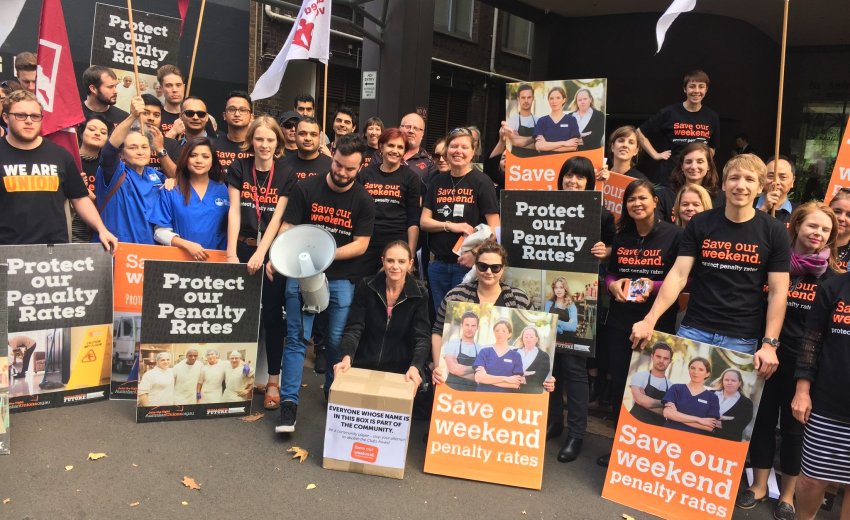
The latest round of penalty rate cuts, which reduce weekend and public holiday penalty rates for staff in the retail, hospitality and pharmacy sectors by 10–15% from July 1, is estimated by the ACTU to affect 700,000 workers.
Shop, Distributive and Allied Employees’ Association national secretary Gerard Dwyer said the penalty rate cuts would cost many retail and fast food workers between $2000 and $6000 a year.
ACTU secretary Sally McManus labelled the cuts wrong and unfair. She warned they will not only hurt working people but also harm the economy.
"We are going backwards as a country," McManus said on July 1. "The last thing we need is for some of our hardest-working, lowest-paid workers to be dealt penalty rate cuts.”
The penalty rate cuts took effect the same day as the Prime Minister and his ministers awarded themselves pay rises of up to $10,000 each.
The Fair Work Commission (FWC) ordered the penalty rate cuts to be introduced in stages with the first round of cuts taking place on July 1 last year.
McManus noted the penalty rate cuts would not help small businesses, as claimed by the government and business leaders, but would instead boost profits for big business.
"If working people have less money in their pockets, they have less money to spend in small businesses," she said. "It's the big hospitality and retail chains that are benefiting from this. Where does that money go? It doesn't circulate in the economy. It goes into offshore bank accounts.”
The main argument by employers and the federal government that cuts to penalty rates would lead to more jobs and greater working hours in small business has been contradicted by new research.
Progressive think tank The Australia Institute Centre for Future Work found that analysis of Bureau of Statistics figures show that the retail sector shed 50,000 full-time jobs in the year to May and the hospitality sector also recorded a loss in employment.
The author of the report, economist Jim Stanford, said the bureau figures were consistent with his argument that "the penalty rate cuts did not spur superior job performance, and in fact have been associated with inferior outcomes".
The penalty rate cuts coincided with the first stage of the federal government's $144 billion, seven-year personal income tax plan, which also started on July 1. Workers earning up to $125,000 a year will receive a tax rebate of between $200 and $530, depending on their income, when they file their 2018–19 tax return next year.
The ACTU pointed out that the personal income tax cuts will not prevent some workers being worse off, because of the simultaneous penalty rate cuts. For example, permanent pharmacists will gain $530 from the income tax cuts, but could lose $1693 from the cut in Sunday penalty rates, leaving them $1163 worse off as a result.
Recent polling conducted on behalf of the ACTU revealed that more than half of voters nationwide thought business profits would rise as a result of penalty rate cuts. Less than a quarter thought it would result in more jobs. Less than 6% thought businesses would pass on any savings in the form of higher wages.
The government has voted six times against legislation or amendments that would reverse cuts to penalty rates. Opposition leader Bill Shorten has pledged to repeal the penalty rate cuts within the first 100 days of government if Labor wins the next federal election.
The government is now escalating its class war against working people and the poor. As the latest cuts to penalty rates take effect, the government is continuing its push to slash taxes for big corporations from 30% to 25%.
McManus said: "The Turnbull government is cutting the pay of 700,000 people who rely on penalty rates at the same time as they're delivering hand-outs to big business. This isn't fair. The money that Turnbull is handing out to big business is coming out of our hospitals, schools, childcare centres and community services."